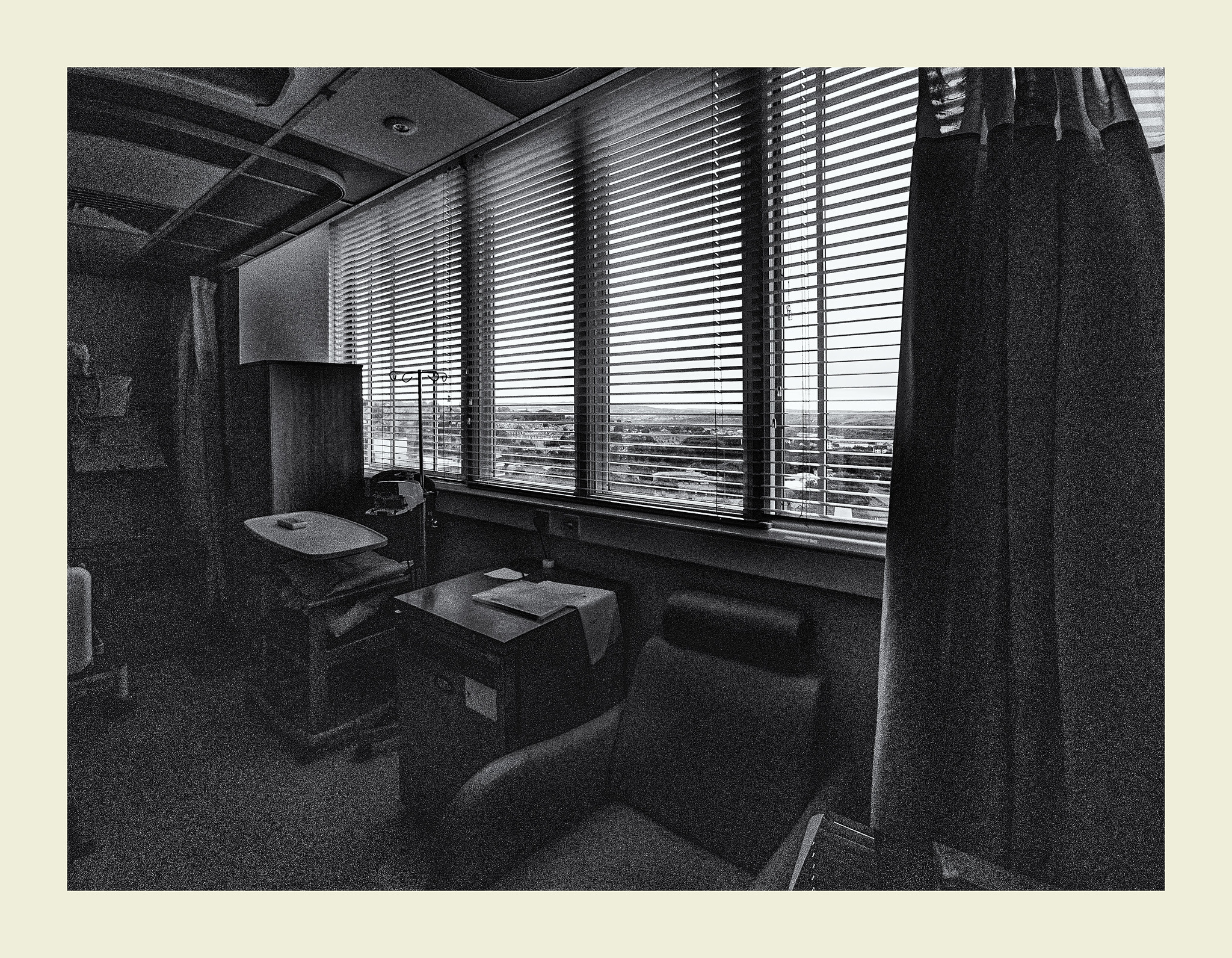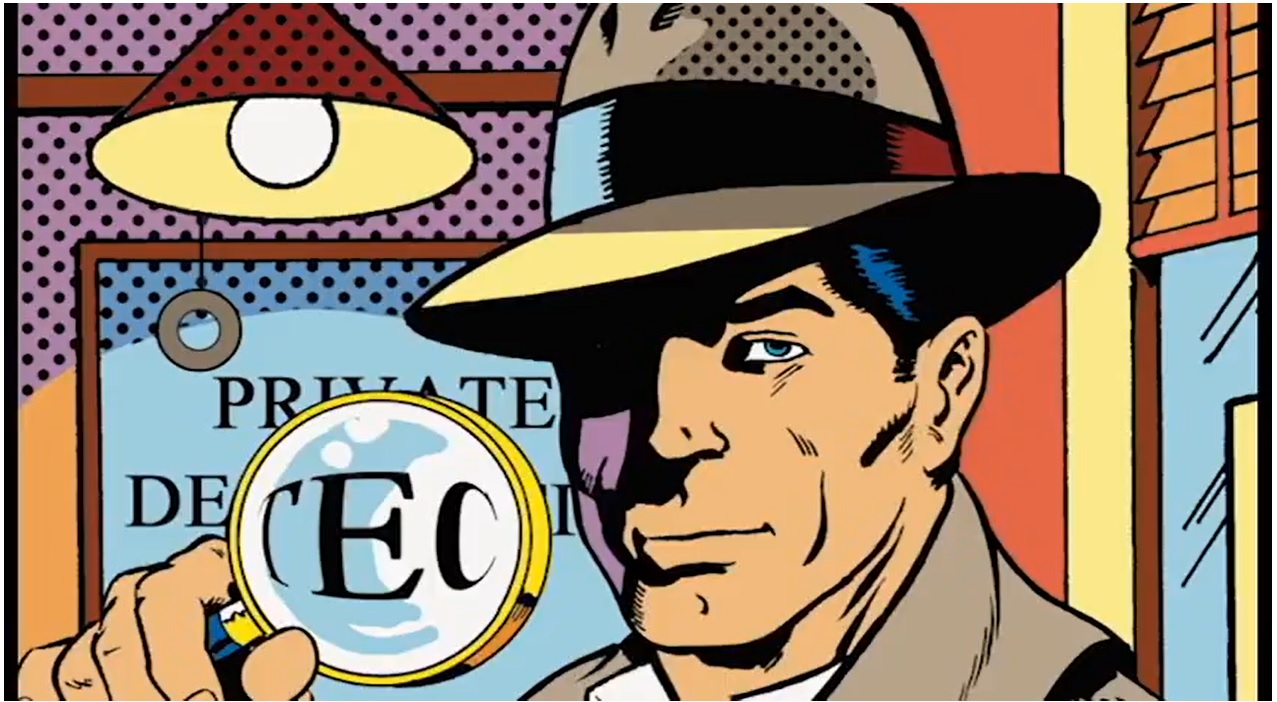-
Artificial Intelligence and Cancer Care
July 27, 2024
As a teacher, my exposure to AI -- Artificial Intelligence -- is limited to checking student essays to see if they were written by ChatGPT. Well, that and seeing people on Facebook panicking and posting stuff like: "It's gonna be like 'The Terminator'!! We're all doomed!!" I'm sure that AI -- like any new technology -- is going to have its advantages and drawbacks. Today, I'd like to mention something positive about AI, and that is how it can possibly help in detecting and treating cancer. According to the National Cancer Institute (NCI), AI has advanced to the point where it can aid in cancer treatment and research. Including:
- Advancing fundamental knowledge of cancer biology
- Expediting cancer screening, detection, and diagnosis
- Improving cancer surveillance
- Improving access to cancer care

-
The Relentless Costs of Cancer
June 1, 2024
Anyone who's unfortunately had to deal with cancer firsthand will tell you that life does not stop when you're diagnosed. It only feels that way. You still have to pay for your ongoing life. Rent or mortgage will have to be paid. Groceries need to be bought. If you have growing children, they will need new clothes, glasses, or school supplies. Your car will need gas in the tank to go to your myriad of appointments. Before I continue, I want to say that when it comes to cancer care, I was -- and continue to be -- very fortunate. At least for now. I was diagnosed with Acute Lymphoid Leukemia in June, 2012 and we received a great deal of support. We had help from family and friends. We had help from Everett Public Schools, the Winchester Boat Club, our Daycare Provider, and the Dana-Farber Cancer Institute to name a few. We even had help from complete and total strangers. Even with this incredible amount of support, we still suffered serious financial setbacks. My wife Sara had to leave work to take care of me help me get to doctor's appointments, chemo treatments, hospital stays, and so on. Our income was slashed in half. At one point, we were three months behind on the mortgage, so we had to dip into my teacher retirement account. More than a decade after my bone-marrow transplant, we are still rebuilding financially. Still, we are some of the lucky ones. Many, many, patients and their families are not.
"Financial Toxicity"
According to Ezikiel J. Emanuel, oncologist and author of the opinion piece "Cancer patients shouldn’t be responsible for out-of-pocket costs" (STAT, May, 2023)," "Financial toxicity is the economic burden patients experience from the costs related to getting treatment for their cancer." Emanuel goes on to state that: "By one 2020 estimate, the average cost of medical care and drugs is more than $42,000 in the year following a cancer diagnosis. To complicate matters, up to 85% of cancer patients leave the workforce during their initial treatment. Consequently, more than 40% of patients spend their entire life savings in the first two years of treatment, while roughly 30% of Americans with a cancer history report having had problems paying their medical bills, having to borrow money, or filing for bankruptcy protection because of their cancer. In addition, informal caregivers, often family members, also experience out-of-pocket and opportunity costs, estimated to be upwards of several thousand dollars per month."Financial Trouble Can Impact Mortality Rate
According to Emmanuel, financial toxicity can impact treatment outcomes, as some people will put off treatment, make treatment changes, or even opt to not get treatment because of finances. It even has an effect on their mortality rate. According to the article "In America, Cancer Patients Endure Debt on Top of Disease," by Noam Levey, (KFF Health News, July, 2023) "about two-thirds of adults with health care debt who’ve had cancer themselves or in their family have cut spending on food, clothing, or other household basics, a poll conducted by KFF for this project found. About 1 in 4 have declared bankruptcy or lost their home to eviction or foreclosure." According to the Centers for Disease Control, the economic burden of cancer care are quite significant "both nationally and for individual cancer survivors. In 2019, the national patient economic burden associated with cancer care was estimated to be $21.09 billion. This estimate includes patient out-of-pocket costs of $16.22 billion and patient time cost of $4.87 billion." And the cost varies by "age, stage at diagnosis, and phase of care." For example, out-of-pocket costs per person were generally higher among adult cancer survivors aged 18 to 64 than among those 65 or older. Among adults 65 or older who had Medicare coverage, out-of-pocket costs were generally higher for those diagnosed with advanced cancer than early-stage disease. "On average," states the CDC in their "Topic is Cancer" blog, "adult cancer survivors experienced about $300 in time costs because of cancer care each year. This cost was higher among cancer survivors aged 18 to 64 than among those 65 or older. It was also higher among adults who had been diagnosed in the last 2 years compared to those diagnosed more than 2 years ago."What to do?
Obviously, I'm not a healthcare policy or insurance expert by any stretch, and I know health care is a very complicated subject. And I am glad that there are new initiatives to make health care costs more transparent. Still, it's hard not to feel that in many cases, the best way to survive cancer is to be lucky, wealthy, or both. Fortunately, many people feel the same way. That is why there are many charities that assist patients with the cost of living through cancer treatment. Cancer.net has an excellent financial resources page. The American Cancer Society also has a financial support page, as well as Cancercare.org. And that's just for starters. If anyone has a story they want to share about their treatment please reach out to me at roadswevetraveled@gmail.com. Read More

-
Information Overload: Getting the Information you Need after your Diagnosis
July 13, 2023
The Many Myths of Cancer
When I was first diagnosed with Acute Lymphoblastic Leukemia at Lahey Hospital and Medical Center back in June of 2012, my hematologist went into great detail about what leukemia was and what I could expect from going through chemotherapy. In fact, throughout the whole process of chemotherapy, my bone-marrow transplant, and graft-vs-host disease, I was given information. I was encouraged to read up on cancer, join support groups, and to ask all the questions I wanted. As I found out, there were a lot of misconceptions and myths out there about cancer and cancer treatment. One of the biggest myths I was told was that it was "clinically proven" that having a positive attitude can help you beat cancer. This was repeated to me by more than one friend and family member. It seemed farfetched to me. How can you clinically prove a "can-do" attitude can beat something so complicated as cancer? So, I looked it up. I even asked my doctor, and as it turns out there is no proof that having a positive attitude can help beat cancer.Cancer Mythbusters
This is just one of the many myths and misconceptions there are surrounding cancer. Just a quick Google search of "common cancer myths" will give you more than two dozen hits from websites all over the globe. As it turns out, there are few subjects more misunderstood by the public than cancer. Considering there are more than 200 types of cancer, and that it is incredibly complicated, and scientists are still figuring it all out, it's no surprise there is so much misinformation. One of my favorite podcasts is called Cancer Mythbusters and it is produced by Dana-Farber Cancer Institute, where I was treated for ALL. One of my favorite episodes explores the idea of cancer being a personal battle which is a concept I will delve into in the next few weeks. The episodes are relatively short, and get straight to the point, which is always important when dealing with these topics, especially for those of us who are dealing with the after-effects of chemotherapy.Episode List and Links Through the Dana-Farber Website
Episode 1: Breast Lumps and Cancer Episode 2: Cancer Genetics and Prevention Episode 3: Smoking and Lung Cancer Episode 4: Is Cancer Contagious? Episode 5: Cancer Clinical Trials Episode 6: Is Palliative Care Only for End-of-Life Patients? Episode 7: Superfoods and Cancer Episode 8: Brain Tumor Myths Episode 9: What to Know About Marijuana Episode 10: Leukemia Myths Episode 11: Breast Cancer Risk Episode 12: Prostate Cancer Myths Episode 13: Early Cancer Detection and Risk Episode 14: Chemotherapy Myths and Misconceptions Episode 15: Alternative Therapies and Integrative Therapies Episode 16: The Myth That Cancer Is a 'Battle' These episodes may also be found on Spotify and Apple Podcasts, Youtube, and other outlets. Read More
-
Funding Research, Funding a Family
August 4, 2021
“And honestly, truer words were never spoken,” Hayley said. “We really became a family.” First, click the link and read the story. Go on. https://www.stjude.org/inspire/series/storied-lives/st-jude-cancer-survivor-hayley-arceneaux-hope-inspiration4-worlds-first-all-civilian-space-flight.html There’s a lot to love about this story — a cancer survivor headed into space, how St. Jude’s Children’s Research Hospital treats patients, and how that treatment helped Hayley recognize […]
Read More
-
The Addiction Group joins our resources page!
July 19, 2021
One of the things I’m proud of is that organizations do reach out to e asking if I can post their organization in our resources page. My first response usually is: “Wow. Is someone actually reading this stuff? Cool!” And then I calm down, take a look at the resource, and determine whether it’s appropriate. […]
Read More
-
Talking About Fear and Love
February 21, 2021
“Then I get a call back a couple of minutes later, and he said, ‘Sorry, I was wrong. You have the curable type, but you do have to go through chemo and radiation.'”
Read More
-
Alcohol Rehab Help joins our resources page
August 12, 2020
For those of us who’ve dealt with alcohol abuse — either because you or someone you love is struggling — it can be hard to admit the problem exists. It can be even harder to find helpful resources. I’ve had friends and relatives that struggled with alcohol, and I know dealing with it can be […]
Read More
-
Helping the not-so-fortunate in these uncertain times
April 10, 2020
I can’t help but think that I and my family are pretty lucky. While the Coronavirus has shut down most of the state, my wife and kids and I are doing all right. Sara has plenty of work, the school district I’m working for is still paying me, and I’m able to post assignments for […]
Read More

-
Mesothelioma Hub added to resources page
April 9, 2020
Morgan Barnhardt of Mesothelioma Hub wrote me an email asking to include her organization on Roads We’ve Travelled. Here’s a quote from her email: “2,000-3,000 individuals die every year due to mesothelioma, with symptoms not appearing until 20-40 years after exposure to asbestos. The scariest time for most families is directly after diagnosis. Therefore, we […]
Read More
-
New addition to our resources page!
March 7, 2020
Hello everyone! I hope this little mini-posting finds you all well. I’m so pleased to add the Mesothelioma Justice Network to our list of resources. What is Mesothelioma? According to Mesothelioma.com, it’s “is a rare, aggressive form of cancer that develops in the linings of the lungs, abdomen or heart. Exposure to asbestos is the […]
Read More
